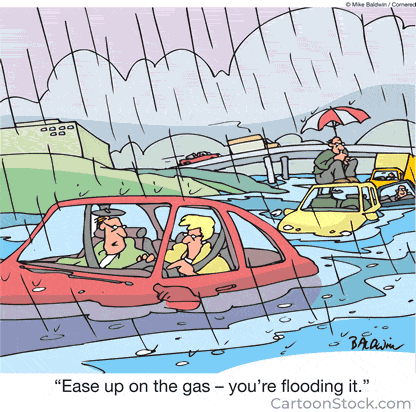
Weight of Vehicle
Gravity affects a vehicle's handling by pulling it down. When the weight of a vehicle is increased the friction force is also increased. This same weight must also be accelerated or slowed whenever you maneuver. If you are traveling up a hill, gravity is trying to pull against your car. This causes you to slow down.
When you're going downhill, gravity pulls your car down, speeding you up. When driving down a hill shift to a lower gear to reduce speed. This will help prevent brake overheating, especially for heavier vehicles such as trucks. The heavier your vehicle, the more distance it takes to stop. If you double the weight of your vehicle, it takes twice as long to stop.
Vehicle weight is an important factor in determining the performance of any vehicle. It can affect the acceleration, maneuverability, braking, and fuel efficiency of a vehicle, and understanding how weight affects a vehicle’s performance can help you make informed decisions when choosing a vehicle.
The weight of a vehicle affects its acceleration, as heavier vehicles require more energy to reach the same speeds as lighter vehicles. Heavier vehicles take more time to reach their maximum speed, and they also require more energy to maintain that speed. This can be especially noticeable when accelerating on hills or other inclines, where the heavier vehicle will be at a disadvantage compared to a lighter vehicle.
Weight also affects the maneuverability of a vehicle. Heavier vehicles are more difficult to turn, as they require more energy to move the mass of the vehicle in a different direction. This can lead to an increase in the amount of time and distance it takes to turn a corner or make a sharp turn. As a result, heavier vehicles can be more difficult to drive in tight spaces or in congested traffic.
The braking performance of a vehicle is also affected by its weight. Heavier vehicles require more energy to stop, as the mass of the vehicle must be brought to a stop. This means that heavier vehicles take more time to stop, especially at higher speeds, and can be more difficult to control during braking.
Finally, vehicle weight also affects fuel efficiency. Heavier vehicles require more energy to move, and this energy typically comes from fuel. As a result, heavier vehicles consume more fuel than lighter vehicles and have a lower fuel efficiency. This can lead to higher fuel costs over time.
Overall, vehicle weight is an important factor in determining the performance of a vehicle. Heavier vehicles typically have slower acceleration, less maneuverability, poorer braking performance, and lower fuel efficiency than lighter vehicles. Understanding how weight affects a vehicle’s performance can help you make an informed decision when choosing a vehicle.















